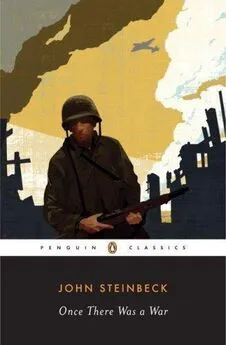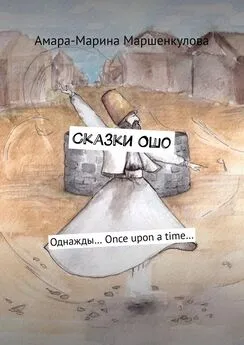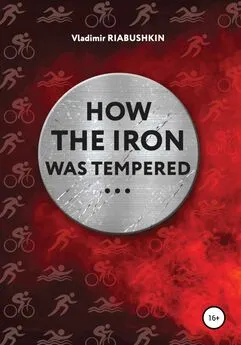John Steinbeck - Once there was a war
- Название:Once there was a war
- Автор:
- Жанр:
- Издательство:Viking Press
- Год:1958
- ISBN:нет данных
- Рейтинг:
- Избранное:Добавить в избранное
-
Отзывы:
-
Ваша оценка:
John Steinbeck - Once there was a war краткое содержание
Once there was a war - читать онлайн бесплатно полную версию (весь текст целиком)
Интервал:
Закладка:
In the concrete wardroom over the berths of the motor torpedo boats the young men gather to drink beer. They are very young men, but there is an age in their faces that comes of having put their lives out at stake too often. The dice have rolled right for some of these young men so far, but a seven has turned up for too many of their friends for them to take the game or their luck for granted. The little boats are not heavily armed for defense, but they carry terrible blows in their torpedo tubes. They are the only lightweights in the world that can deliver a heavyweight punch. For their own safety they have only their speed and the cleverness of their crews.
Tonight they are going out on what the men call a Thing. A Thing is something bigger than a Scramble, but slightly less large than The Thing. A Thing is likely to be an attack on a German convoy, slipping secretly in the night through the Channel, but heavily armed and heavily guarded and, moreover, hugging the coast so that they are under the shore guns most of the time. And against them these tiny ships are going to dodge in under the shellfire, twist and turn in the paths of the tracers, and, finally, shoot their torpedoes into the largest ship they can find and then race for home.
In the wardroom the men speak with a kind of intense gaiety. You never hear the enemy discussed. By unstated agreement or because there has just been too much war they do not discuss war. The enemy is Jerry, or the Boche, and his name is spoken as something disembodied and vague. Jerry is a problem in navigation, a job, a danger, but not much more personalized than any other big and dangerous job. The men suffer from strain. It has been so long applied that they are probably not even conscious of it. It isn’t fear, but it is something you can feel, a bubble that grows bigger and bigger in your mid-section. It puffs up against your lungs so that your breathing becomes short. Sitting around is bad. You have a tendency to think that everything is very funny. This is the time to bring out the frowsy story that wouldn’t do so well at any other time. It will get a roar of laughter now.
There is a little bar in the wardroom where a Wren serves the flat beer that no one likes. The beer isn’t good, but everyone has a glass of it, and it is hard to swallow, because so much of you is taken up with the big bubble.
On the wall there is a clock and the hands creep slowly, much too slowly, toward the operation time. The waiting is the terrible part. The weather reports come in, There is wind, but perhaps not enough to cancel the Thing. Dozens of the little ships are going out. It is an Allied operation. There are Dutch boats, and Polish boats, and English. The Poles are great fighters. This is their kind of work. When the little ships attacked the Scharnhorst , slipping through the Channel, it is said that a Polish sailor was down on the prow of his torpedo boat, calmly firing at the great steel battleship with a rifle. The Dutch have a calm, cold courage, and the British pretend, as usual, it is some kind of a garden party they are going to.
At ten minutes to the time the men start to get into their suits, complicated coats and trousers of oilskin that tie closely around the ankles. A towel is wrapped around the neck and the coat buttoned in tight about it. The little ships are wet. The green water comes over the bow constantly and there isn’t much cover. In action the men will presumably wear helmets on their heads, but this is only a presumption. Now they stand about, padded and wadded, their arms a little out from their sides, held out by the thick clothing. The leader of this group is a young man of great age. He is twenty-two and he came from a destroyer to the little MTBs. The big hand of the clock creeps on to the time of departure. The commander says, almost casually, and just as it is on the minute, “All ready?”
All the young men stride heavily out of the door, down the steps to the hidden pens where the little stinging fish lie. There is a roar as engine after engine starts. Now the bubble bursts in your stomach and you can breathe again. Everything is all right. It’s a good night, misty and with little visibility. The boats back, one by one, from their berths and fall into line. A tiny blinker signals from the leader, the great motors thunder, the boats leap forward, and the white wake Vs out. The green water comes in over the bow. The crew huddles down, braced against the wind and the sea—no one has mentioned the war.
THE COTTAGE THAT WASN’T THERE
LONDON, July 14, 1943 —The sergeant lay in the grass and pulled grass and a bit off the tender stems and chewed them. It was Sunday, and a number of people were lying about, sailors and soldiers and even a few civilians. Across the path a line of people were fishing in the Serpentine, sitting on rented chairs, fishing in water that was stirred with the oars of boats and kicking swans. Each fisherman had his little audience.
The sergeant said, “This is a crazy country. Look at that, there hasn’t been a fish caught there all day, and they go right on with it. Maybe they’re not after fish. It’s a crazy country, and it’s getting me nuts, too.” He spat out a little chewed wad of green grass stems. “I’ve got something bothering me,” he said. “It’s a ghost story. I don’t believe it happened, and I know it happened. Only I don’t believe in ghosts. I’ve been thinking about it, sniffling around it, and I can’t make any sense out of it.
“You see,” he said, “I’m at a little station up in the country. Not a very big outfit. There is a village about a mile from camp, and in the evening we walk in and get a couple of glasses of beer and try to figure out this darts game.”
Far up the line of fishermen a man caught a fish about the size of a sardine and caused so much excitement that he was surrounded by people in a moment. The sergeant chuckled. “I used to work salmon in the Columbia River,” he said, and let it go at that. “Well, anyway,” he said, “it came on toward dark, and I’ve got some paper work to do, so I figured I’d walk back to camp. The other fellows weren’t ready to go yet. They’re kidding the barmaid, telling her they know movie stars. So I started out alone.
“I’ve been over that little road at least a hundred times. I know every foot of it, I guess. It’s a narrow, little road, with hedges on both sides, so you can’t see into the fields. The road is kind of cut down, like a trench. It’s not a very dark night, at least there is some starlight, and you can see big clouds, like it was going to rain.” He stopped and seemed to be considering whether he should go on at all. He was looking across the Serpentine at the little pavilion where they rent boats, where the line of people wait all day for their turn to rent a boat.
The sergeant made up his mind suddenly. “About halfway back there was a light out onto the road. There was a little cottage, kind of, with the hedge coming up to it on both sides. There is a garden in front, a fence and then this big square window with little panes. Well, the light is coming out of that window. I looked right through and could see the room. It was kind of pleasant. There was a lamp on the table, and a fire in a small fireplace. It was kind of pleasant. It wasn’t a very bright light, but you could see pretty well. There’s a white cat asleep on the seat of a chair, and sitting beside the table under the lamp is a woman about fifty, I should say, and she is sewing on something. I stood there. Peeping-Tommed for a couple of minutes. It was peaceful and cozy-looking and nice.
In a minute I walked on. There was something bother-big me in the back of my mind. And then I thought, ‘Sure that’s what it is, no blackout curtains.’ I hadn’t seen a light coming out of the window at night for ten months—that’s how long I’ve been over. I was going to go back and tell that woman to pull her blackout curtains in case some country cop came along. She’d get a stiff fine. I turned around and looked back. I couldn’t see the cottage, but I could see the light shining out in the road. Well then, I thought, ‘What the hell, maybe no cop will come by.’ It looked so nice, the room and the fire that you could look in on. You get awful tired of the blackout.”
The sergeant picked up a little twig, dug at a grass root with it. “I walked along, but there was something that kept ticking away in my head, something I couldn’t get hold of. It began to sprinkle a little bit of rain, but not enough to hurt anything. I thought about the work I had to do, but I couldn’t get away from the feeling that there was something wrong with something.”
He dug out his grass root, and it came up with a little lump of soil in it. He shook the dirt out of it. “I was just about to turn into the camp when it plumped into my mind. Now, this is what it is. And I’ve been thinking about it, and I can’t figure it out. There isn’t any cottage there, just four stone walls all black with fire. Early in the blitz some Jerry dropped a fire bomb on that cottage.”
His fingers were restless. They were trying to plant the grass roots again in the hole they had come out of. “You see what worries me about the whole thing is this,” he said. “I just don’t believe stuff like that.”
GROWING VEGETABLES
LONDON, July 15, 1943 —On the edges of American airfields and between the barracks of troops in England it is no unusual thing to see complicated and carefully tended vegetable gardens. No one seems to know where the idea originated, but these gardens have been constantly increasing. It is fairly common now that a station furnishes a good part of its own vegetables and all of its own salad greens.
The idea, which had as its basis, probably, the taking up of some of the free time of men where there were few entertainment facilities, has proved vastly successful. The gardens are run by the units and worked by the groups, but here and there a man may go out on his own and try and raise some strange seed which is not ordinarily seen in this climate. In every unit there is usually some man who knows about such things who advises on the planting, but even such men are often at a loss because vegetables are different here from the vegetables at home.
The things that the men want to raise most, in order of choice, are green corn, tomatoes, and peppers. None of these do very well in England unless there is a glass house to build up sufficient heat. Tomatoes are small; there are none of those master beefsteak tomatoes bursting with juice. It is a short, cool season. Green corn has little chance to mature and the peppers must be raised under glass. Nevertheless, every care is taken to raise them. Men who are homesick seem to take a mighty pleasure in working with the soil.
The gardens usually start out ambitiously. Watermelons and cantaloupes are planted and they have practically no chance of maturing at this latitude, where even cucumbers are usually raised in glass houses, but gradually some order grows out of the confusion. Lettuce, peas, green beans, green onions, potatoes do very well here, as do cabbages and turnips and beets and carrots. The gardens are lush and well tended. In the evenings, which are very long now, the men work in the beds. It does not get dark until eleven o’clock, there are only so many movies to be seen, English pubs are not exciting, but there does seem to be a constant excitement about the gardens, and the produce that comes from them tastes much better than that purchased in the open market.
One station has its headquarters in a large English country house which at one time must have been very luxurious. Part of the equipment of this place is a series of glass houses, and here the gardens are exceptional. There has never been any need to exert pressure to get the men to work in the gardens. They have taken it up with enthusiasm and in many cases men from the cities, who have never had a garden in their lives, have become enthusiastic. There is some contact with the normal about the garden, a kind of relationship with peace.
Читать дальшеИнтервал:
Закладка:










